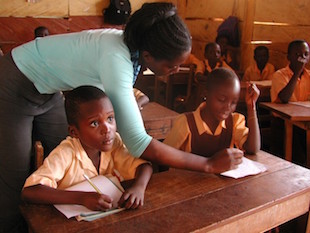NEW YORK – We may all speak English on the internet but there are hundreds of thousands of languages spoken worldwide and a UN agency wants to protect them.
“Languages are who we are,” said UNESCO director general Irina Bokova in her message on the occasion of International Mother Language Day. “By protecting them, we protect ourselves.”
The international day has been observed every year throughout the world on February 21 to promote linguistic and cultural diversity and multilingual education. In most parts of the world, students leave school proficient in more than once language. But in the U.S., this is rarely the case.
By and large, foreign language instruction in U.S. schools has not changed with the times, observed Douglas McGray, an analyst with the New American Foundation in Washington. Despite the world’s new hotspots emerging in China and the Middle East, only 1,300 students in public high schools were studying Chinese – or 8 percent of those studying American Sign Language in the year 2000. Only 500 were studying Arabic, compared to 175,000 studying Latin.
Two thirds of U.S. high school students never even study a second language and the percentage is higher for college students (92%), says McGray. Sadly, even where children have a second language at home, they may not be able to talk with relatives when they are grown.
A movement has grown up in Africa to preserve local languages of which there are estimated to be between 700 and 3,000. South Africa has 11 official languages, and scores of unofficial ones.
Nigeria is one of the most linguistically diverse countries on earth, says Kole Omotoso, a professor at Adekunle Ajasin University. But many children don’t learn their mother-tongues, so languages need to be protected and more widely taught in order to survive.
“Nigerian languages remain very poorly researched compared with indigenous languages in Europe, the Americas and Australia,” he adds.
The celebrated writer, Ngugi wa Thiong’o of Kenya, has been particularly outspoken on the need to preserve African languages.
“English is not an African language,” he famously said. “Everyone’s language is the keeper of their memory… Language is empowerment as shown by the fact that one of the first things that the colonizers did was to cut off the African slaves’ linguistic connection to Africa.”
Moving original African languages to the periphery, he says, is result of “a globalization of inequality of power between languages”.
Meanwhile, in New York, Mother Language Day will be celebrated by the Bodoma Garifuna Culture Band on February 21, performing in their endangered Garifuna language. The event takes place at National Sawdust, 80 N. 6th St. in Brooklyn from 1-5pm. There is no charge to get in. [International Press Syndicate – 16 February 2016]
Photo: Language teaching in Ghana.

